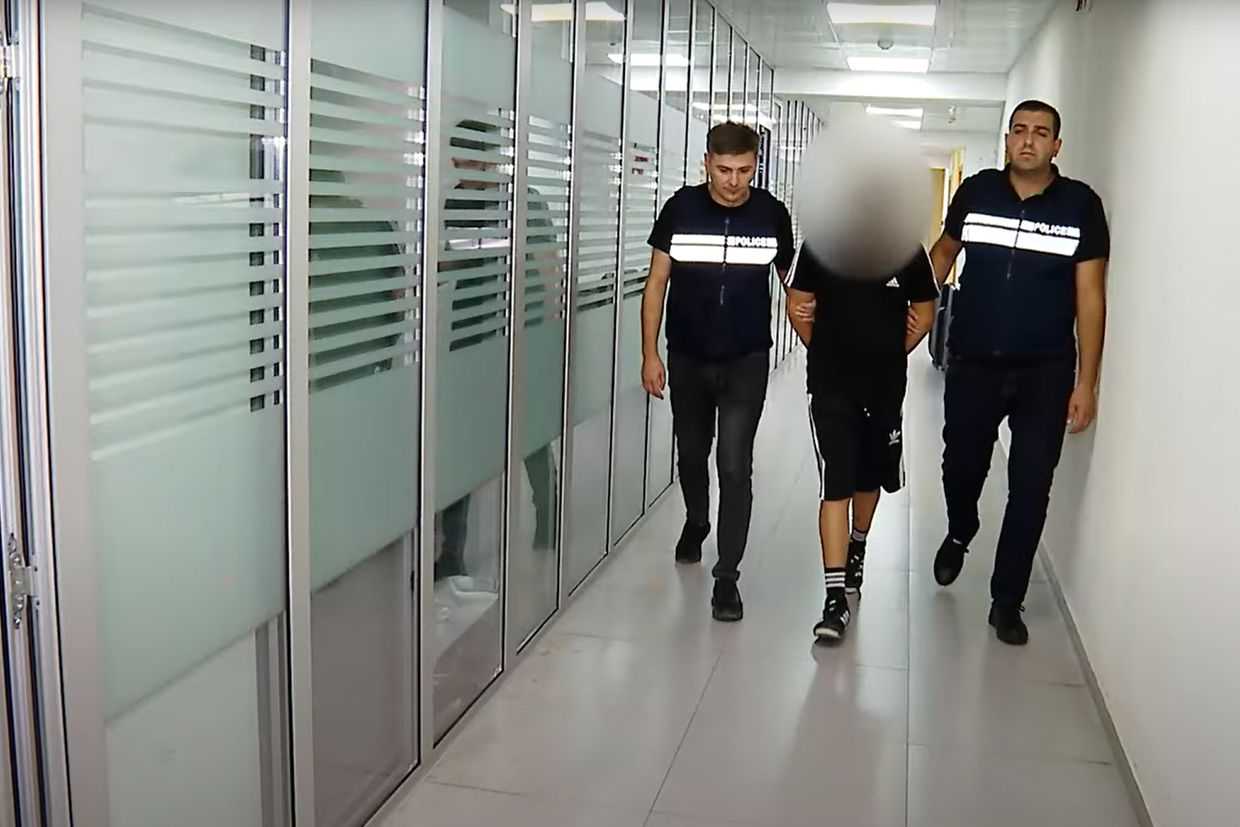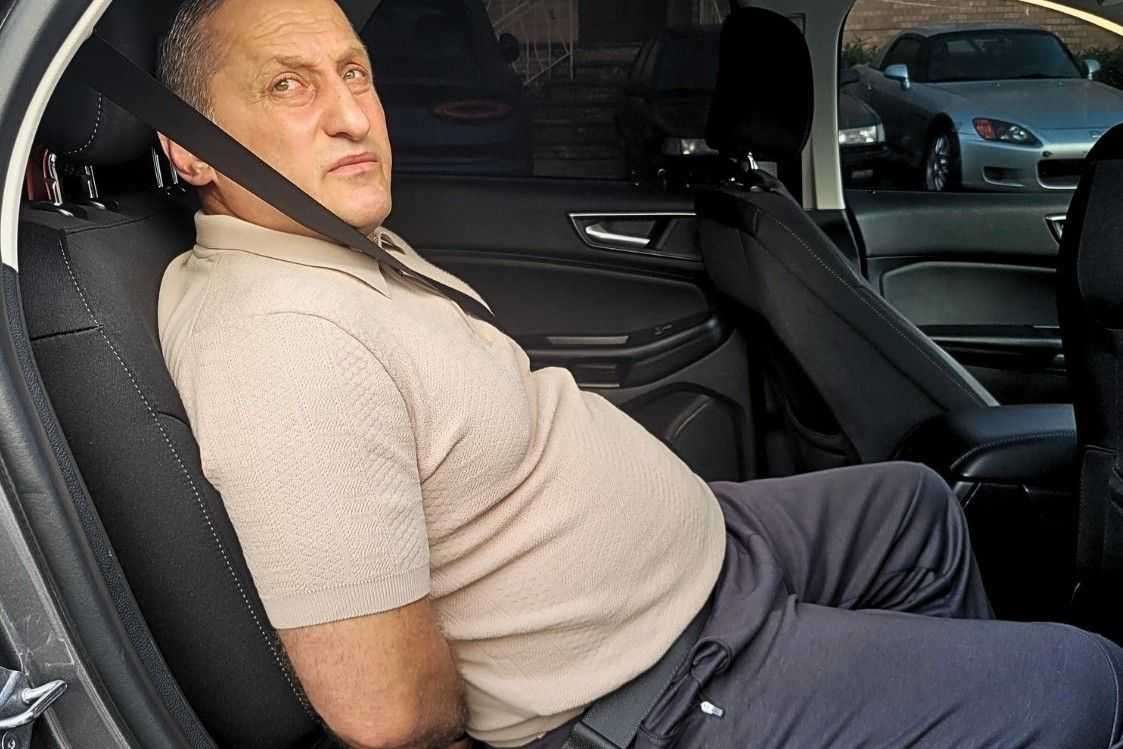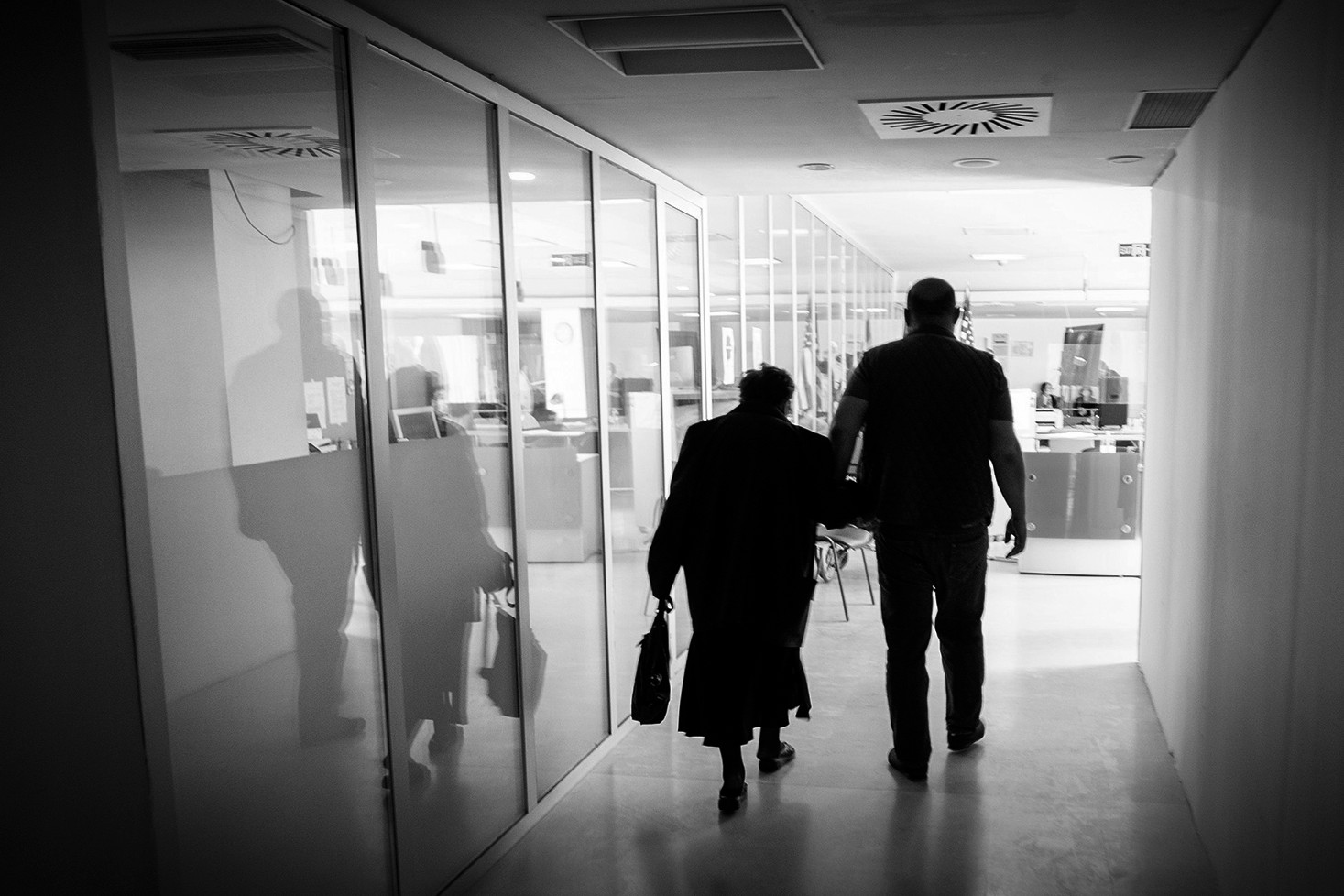
A group in Georgia has set out to unravel an alleged decades-long practice in which babies were sold by doctors after being falsely pronounced dead. But the authorities have remained tight-lipped, leading to frustration from the thousands of Georgians unsure of the fate of their children, or of their own identities.
After having lived an unassuming childhood in her hometown of Rustavi, Nini Mokhevishvili’s life turned upside down nine years ago when her mother, Nana, revealed that not only was she not her biological mother, but that she was bought as a newborn.
Nana explained to her daughter that the deal was facilitated by Aleksandre Baravkovi, an obstetric gynaecologist, 27 years ago. At the time, Baravkovi was the general director of the Rustavi Maternity Hospital. She was told that five children were ‘up for adoption’ at the hospital — but decided not to take any of them home with her.
According to her, Baravkovi instead offered her a chance to adopt another child: a baby girl of Russian–Georgian descent who he said was born at her family home.
She knows little else; Nini’s birth parents had supposedly ‘given up on her’, and she had a biological brother.
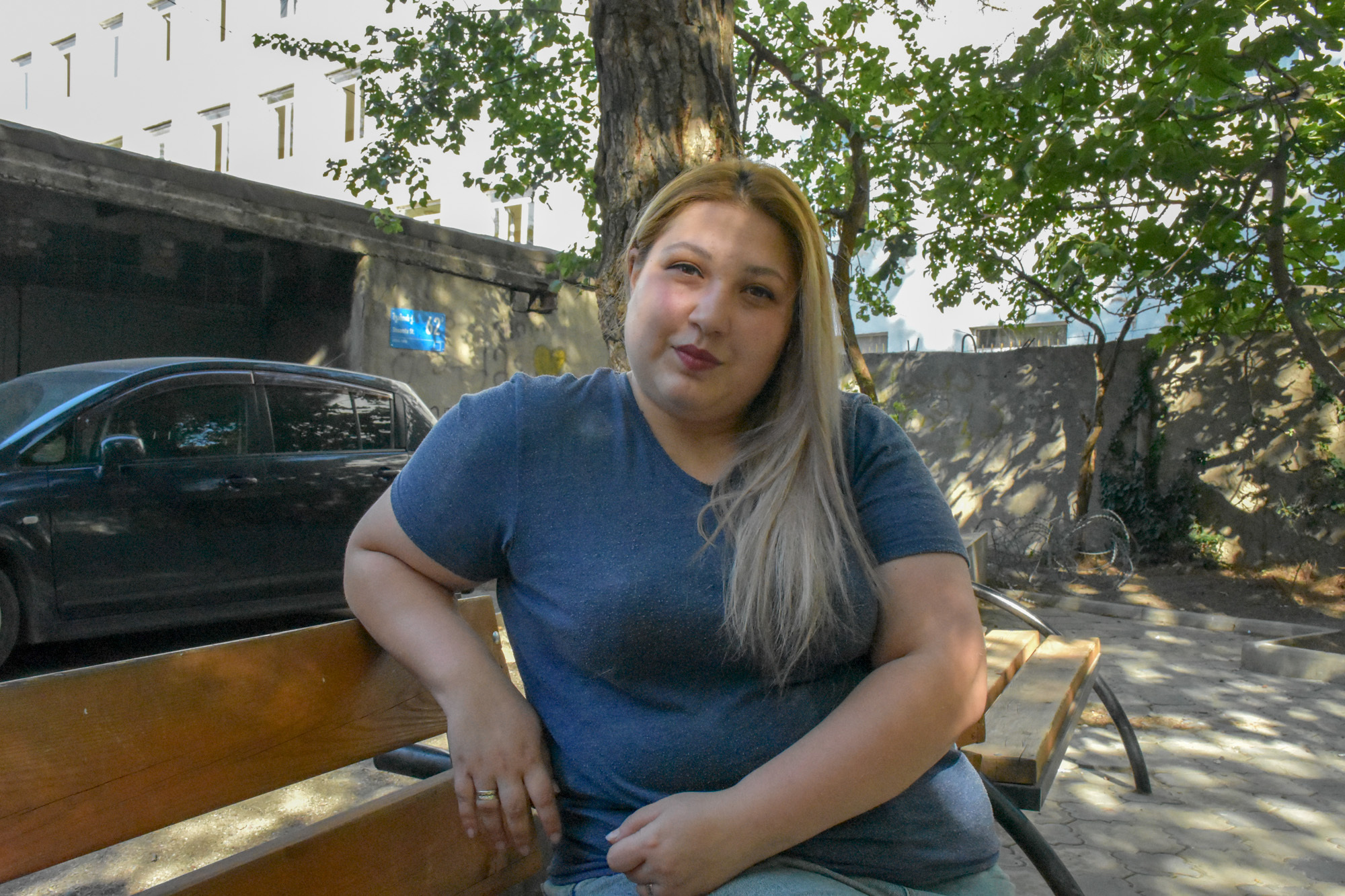
Mokhevilishvili says her family met Baravkovi on the Rustavi highway at 10:00 one morning, paying him $1,000. The doctor returned 16 hours later in the dead of night.
Riddled with inconsistencies, this retelling created more questions than answers for Nini, who doubts that she was even born in Rustavi. The revelation has, however, set her on the warpath to uncover her true parentage.
Nini had no documents alluding to where she came from, as she was registered as her adoptive parent’s biological child. She was pressed for leads, even resorting to a DNA test that only yielded one distant relative.
‘I [first] believed that my biological mother didn’t need me and sold me, but over time, I began to doubt this’, Nini tells OC Media. ‘I heard stories about how doctors sold children, and I started looking [for my biological family]’.
Eventually, she had no option but to reach out to Dr Baravkovi himself, first attempting to seek answers through Facebook and later visiting him twice in his clinic in 2020 and 2022.
She said Baravkovi met her with derision and mockery both times.
‘Do you know how many like you are looking for their families?’ she quoted him as saying. ‘Now, ask me if I have told your [adoptive] parents the truth’.
Baravkovi has several times been approached by journalists about his alleged involvement in newborn trafficking. Last year, he refused to comment on the accusations against him in a TV Pirveli interview, noting that he ‘may have jokingly said’ that newborn trafficking was commonplace in the 1990s. He also denied that he knew Nini Mokhevishvili.
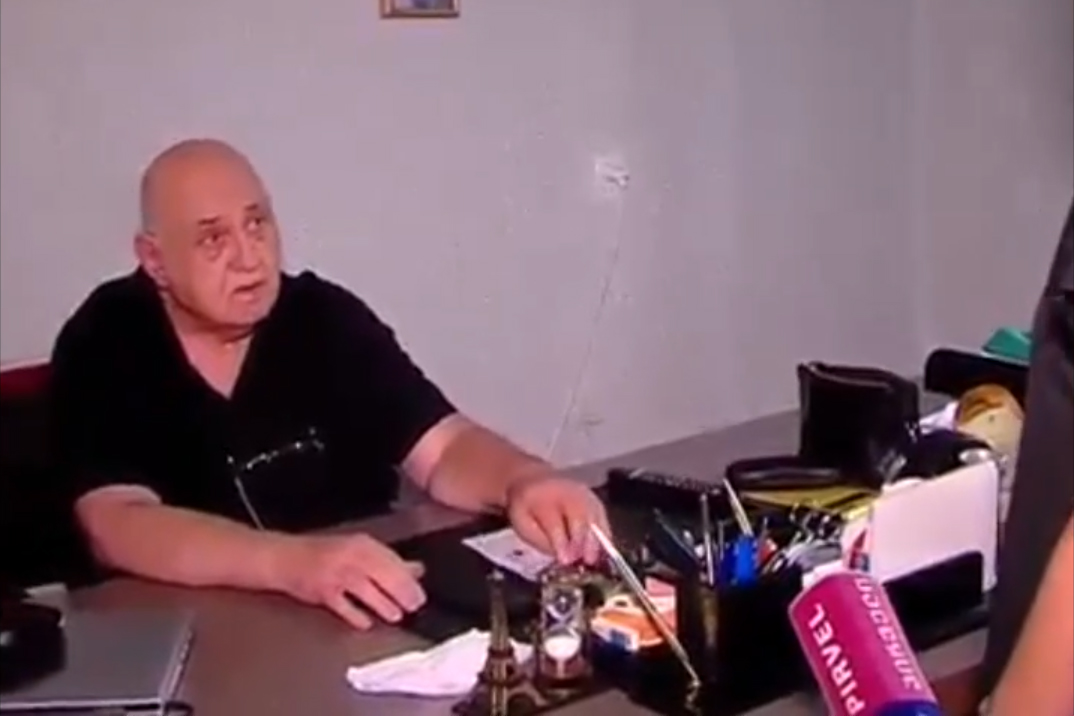
In 2015, Baravkovi found himself at the centre of a Ministry of Finance investigation into newborn trafficking. He and eight others were remanded to pre-trial detention.
‘The suspects offered pregnant women who came to the maternity hospital money to abandon their newborn children’, read a report from the ministry at the time.
Little information about Baravkovi’s case exists publicly. When asked for details about the gynaecologist’s sentencing, the Tbilisi City Court refused to hand out his case file without his consent. The Prosecutor’s Office told OC Media that all nine were convicted, though evidently, Baravkovi was since released.
OC Media attempted to reach Baravkovi for comment, but he hung up the phone when asked about the case.
‘They didn’t give me anything, not even a birth or death certificate’
While many are searching for their biological parents, others have always doubted whether they were told the truth about their children’s deaths.
Keti Achkharashvili was 20 years old when she prematurely gave birth to her first child two months ahead of schedule.
‘I gave birth to a boy in Tbilisi on 9 December 1994, prematurely. When the baby was born weighing 2 kilogrammes, I heard his cry, and for the next six days, while the baby was in the incubator, I went up every day to see him and give him milk’, she tells OC Media.
At the time, she received conflicting reports from doctors and nurses, some of whom told her that her child had a 50/50 chance of survival given his premature birth, while others assured her that he would be fine.
She recalled being asked ‘strange questions’ by a nurse the day after he was born.
‘She asked me for very detailed information about mine, my husband’s, and our family members’ medical history; whether my husband used alcohol or drugs at the time of conception; whether we have genetic diseases in the family — diabetes, schizophrenia, mental illness, and so on.’
None of the doctors gave her any updates on her child’s health after that exchange, and she continued feeding him in the hospital’s neonatal intensive care unit.
Everything seemed fine until the hospital staff asked her to bring in a specific paediatrician from another clinic to examine her son, who reported that his condition was ‘very critical’.
‘On the same day, as usual, I went up to bring milk for my son, and I encountered a very strange scene: the incubator in which my son was placed all these days was empty. But a child was lying on the table, alive.’
‘I didn’t see his face, but I heard his voice’, she recalled. ‘At that moment, they [a nurse and doctor] covered the child with some blanket, and I was quickly kicked out of the room.’
She never saw her son again; the hospital told her he had passed away the same day. She never got to see his body or even name him.
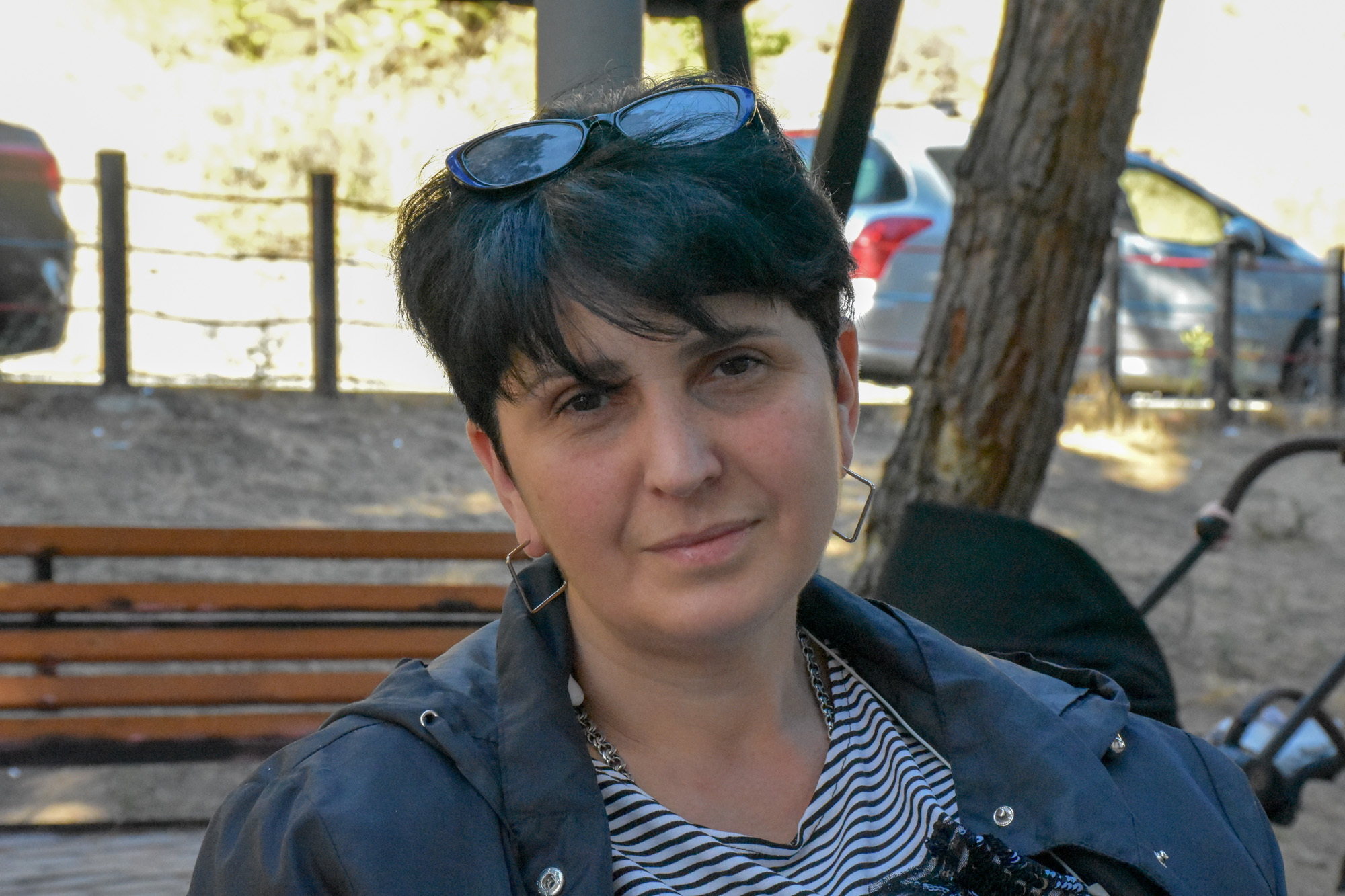
Achkharashvili’s husband went to the hospital and demanded that his son’s remains be handed over for burial. Still, the nurses reassured him ‘not to worry about it’ and that they would ‘handle everything’.
The suspicion that her son might still be alive did not creep in until she became pregnant with her second child. She was asked for her first son’s death certificate during her consultation with a gynaecologist.
‘They didn’t give me anything, not even a birth or a death certificate. But they did not return my passport for almost a month’, said Achkharashvili. ‘Several times a week, my relatives and I went to get my passport, but for some stupid reason, they took their time until my husband threatened to call the police.’
Achkharashvili thinks the hospital probably needed her passport to process her son’s paperwork, but she didn’t quite understand what was happening then.
Achkharashvili later discovered that her child’s birth was registered under her maiden name, and his death certificate was under her husband’s surname.
‘It’s possible that they made a completely different document for [my son] after the death certificate was signed, and now he has completely different data. Maybe his date of birth has been changed because he was premature and should have been born in February.’
‘I’m searching for…’
Over time, Achkharashvili and Mokhevishvili found that they were not alone in searching for their relatives; both women came across Vedzeb (‘I am searching for…’) on Facebook, a group created for the express purpose of helping Georgians who believe they were victims of newborn trafficking — be they parents or children — to find and reconnect with their missing relatives.
Vedzeb is the brainchild of Tamuna Museridze and Ia Kvelashvili, both women searching for missing family members. Museridze was adopted as a newborn and separated from her birth family, while Kvelashvili was looking for a sister who she believes was sold after she was born.
Though a little over a year old, the Vedzeb Facebook group rapidly gained a large following, with over 200,000 members. Every day, at least one person shares their story, giving details about where they gave birth.
They hope that their children, who were presumed dead, might eventually stumble upon these posts.
Many similarities can be found among the stories shared in the group. Some women found inconsistencies in the documentation of their children’s supposed deaths. A good number of women have recalled not being allowed to see the bodies of their deceased children as well, with hospitals insisting on burying the babies instead.
Today, Vedzeb, fronted by the 37-year-old Museridze, claims to have helped reunite 500 people with missing relatives — a tiny drop in the ocean, as Vedzeb says they believe more than 100,000 newborns may have been kidnapped and trafficked by doctors and nurses between 1950 and 2005.
‘Since 1993, children have been taken outside of Georgia. Until now, we thought that children were transported only to America and Canada, but it turned out that children were also transported to Greece, Israel, Cyprus, Russia, and Ukraine,’ Museridze told OC Media.
‘It was a standard scheme’, explained Museridze. ‘Around the third day [after giving birth], all [parents] were told that the child suddenly died’.
Museridze claims that the medical staff at maternity hospitals used to tell parents that their newborn had died because of respiratory problems or that the nurses had dropped the baby.
‘There were cases when [the hospital] said that a wood stove was lit in the children’s room and the smoke suffocated the child’, she said.
In an investigation of its own, Vedzeb has discovered that many maternity hospitals that have offered to bury dead newborns did not even have cemeteries of their own.
Museridze also claims that the doctors and nurses involved in abducting newborns would rent flats to facilitate trafficking throughout the country. Children would be transferred to these flats and were looked after by nannies until ‘prospective buyers’ appeared to take them away.
According to her, newborns went for different prices depending on their gender and where they were born; boys from Tbilisi were more expensive than those born in the regions.
‘[In the last century] in Tbilisi, the “price” for a girl was $1,000, for a boy it was $1,500’, says Museridze. ‘In the regions [it was different]; for girls, it was $500, while for boys it was $1,000’.
Museridze cites one case in which a grandfather was searching for his grandchild, who was pronounced dead.
‘He told us that one year after the “death” of the baby, their mother died, and they decided [to bury them in one grave]’, Museridze recalls. ‘They decided to open the rotting coffin and put the baby in a new one, but when they opened the coffin, they found chicken feet in it.’
By collecting donations and seeking sponsorships, Vedzeb helps mothers and people looking for their birth parents procure DNA tests stored in a database in the United States. The organisation hopes that the more DNA samples they collect, the likelier they will find matches among those trying to find their family members.
A dead investigation?
As Vedzeb overflows with stories of people who claim to have lost family members to human trafficking, many wonder why the authorities are not doing more to investigate.
Aside from the Ministry of Finance’s investigation into Baravkovi’s alleged involvement in human trafficking, the authorities investigated the trafficking of newborns in 2003 — incidentally, the same year Georgia criminalised human trafficking — though little public information is available on the investigation.
Georgia only adopted a dedicated anti-trafficking law in 2006.
Before that, human trafficking was categorised as a ‘less serious crime’, says Beka Takalandze, a lawyer at the Georgian Young Lawyers Association lawyer.
‘[Human trafficking] was punishable by up to five years in prison. With aggravating circumstances — if the act resulted in some serious consequences such as the death of a minor — in this case, the offence was punishable by imprisonment of over ten years’, Takalandze tells OC Media.
Takalandze speculates that looming statutes of limitations make investigating accusations against persons who were allegedly involved in human trafficking virtually impossible.
‘According to today’s legislation, such a crime has a 30-year statute of limitations,’ Takalandze says.
There is little public information about the 2003 case or the 2015 Aleksandre Baravkovi investigation; however, Vedzeb’s Museridze has claimed that the Ministry of Internal Affairs is investigating several more cases.
The ministry confirmed to OC Media that it launched another investigation in September 2022. Vedzeb’s Tamuna Museridze thinks the authorities might have found new and prosecutable cases.
‘Perhaps, since we found cases for which the statute of limitations had not yet expired, this is probably why the investigation became interested in this issue,’ she said.
Museridze herself has still not found the answers she is seeking. Her own journey began six years ago, when her mother passed away and she found two birth certificates in their home. ‘I went to the [Public Service Hall], and it turned out that, officially, there is no record of the fact that my mother gave birth to me.’
She was initially met with hostility from her relatives, from whom she tried to get answers. ‘Eventually, they told me what was going on’, she says.
‘I am still looking for my biological parents.’

